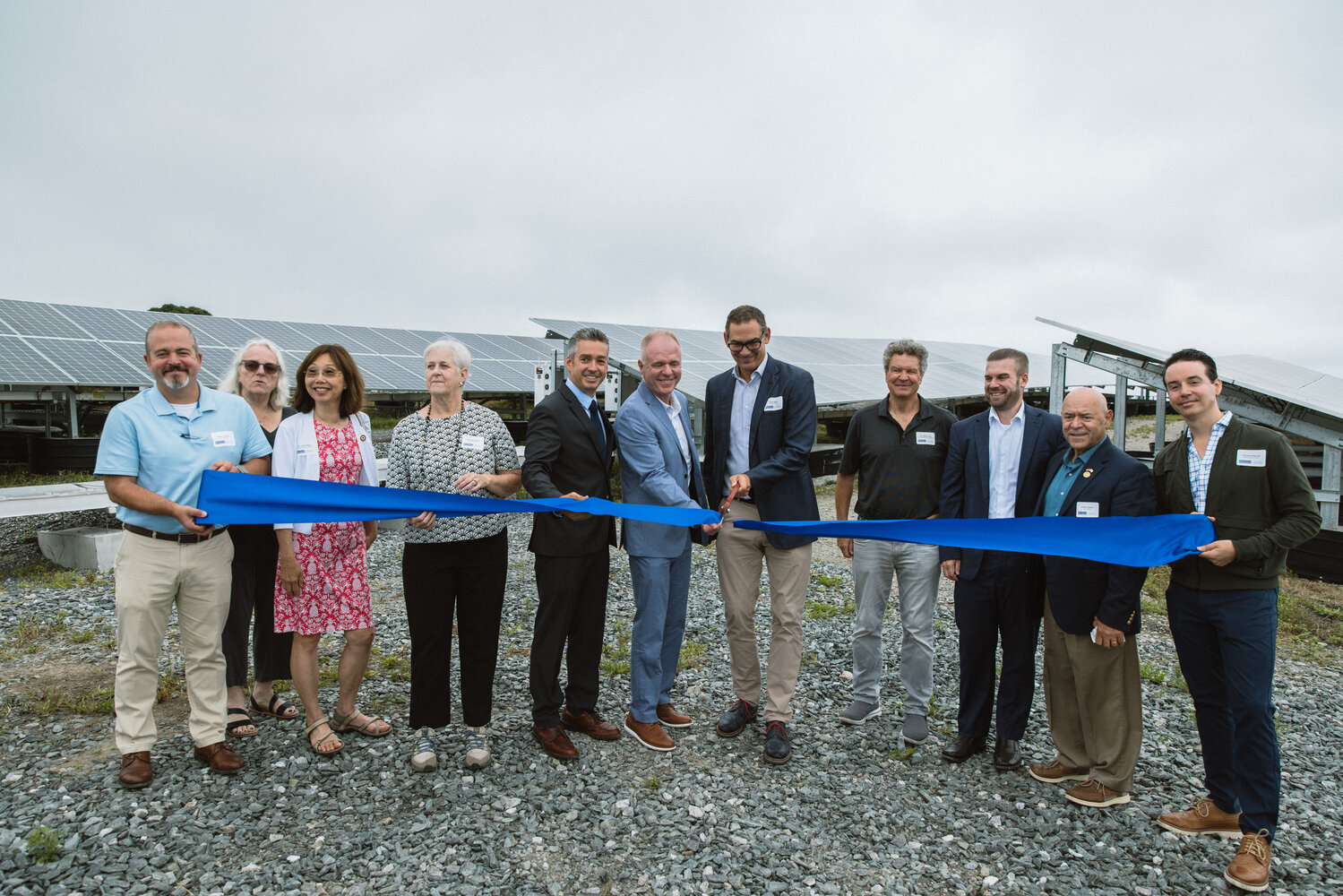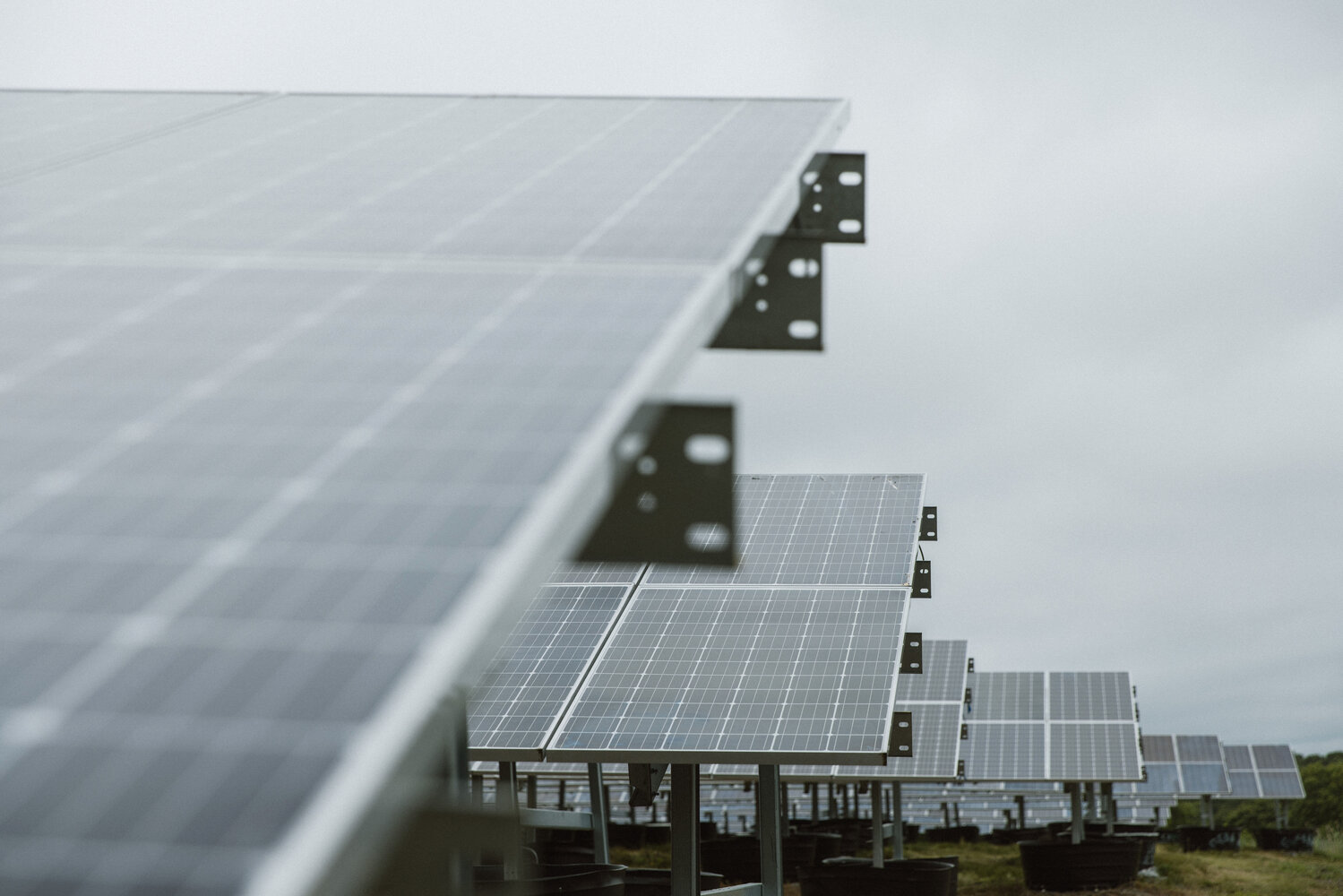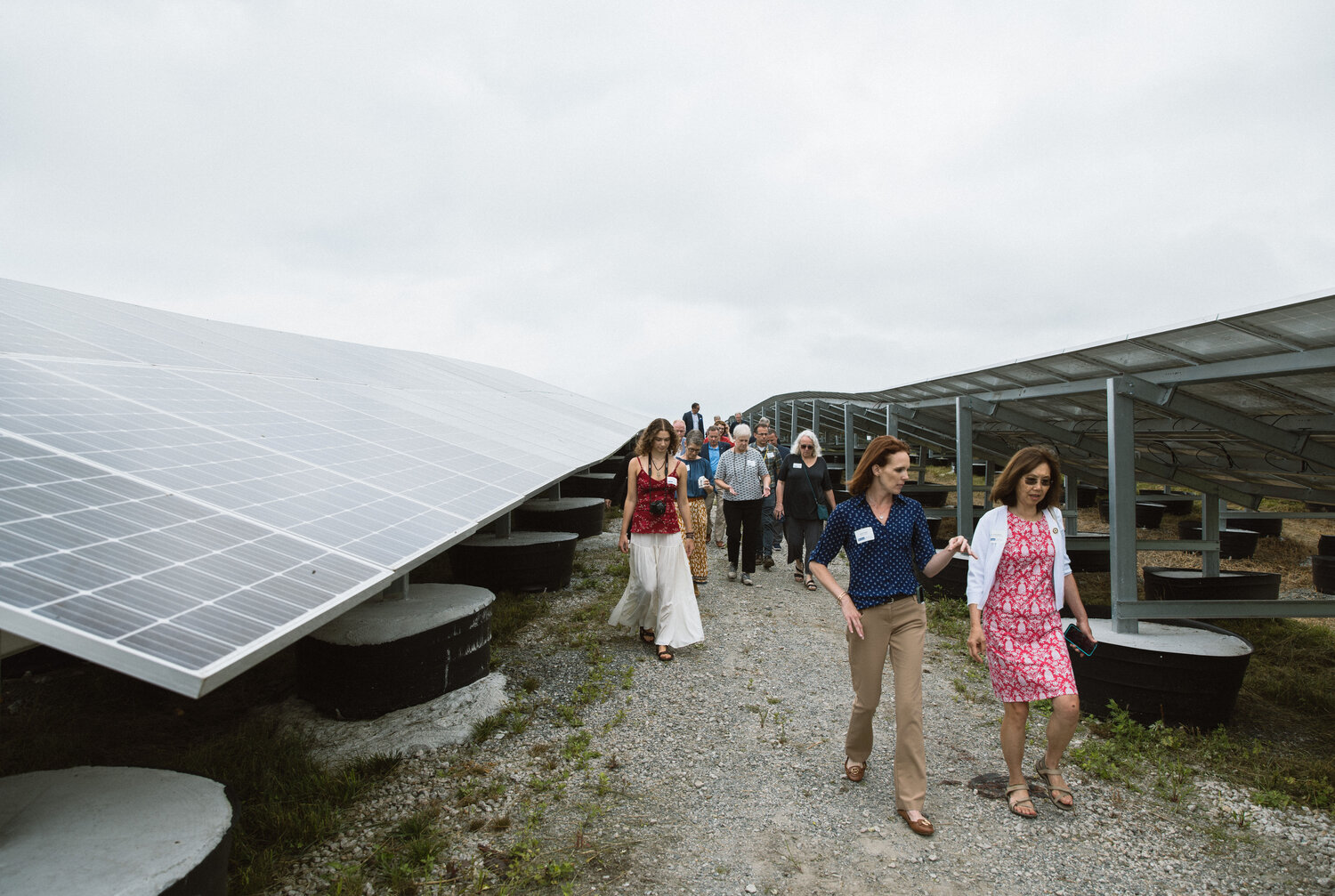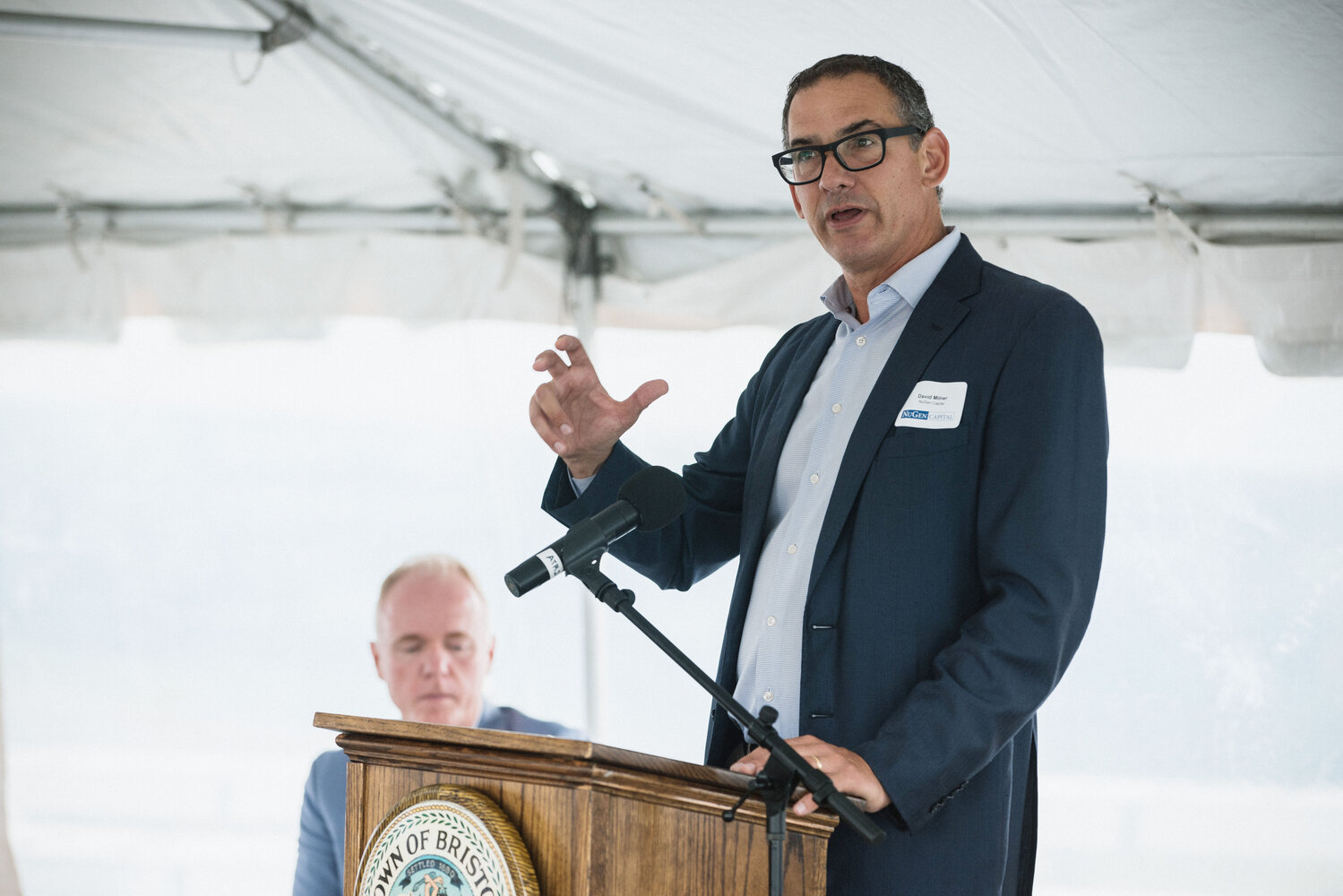Rhode Island’s largest former landfill solar site officially opens in Bristol
Developed by NuGen, the Bristol Landfill Solar Project covers 90 acres and consists of 20,692 solar panels with an estimated annual production of 8,700,000 kWh, enough to power 700 homes and businesses.
This item is available in full to subscribers.
Please log in to continue |
Register to post eventsIf you'd like to post an event to our calendar, you can create a free account by clicking here. Note that free accounts do not have access to our subscriber-only content. |
Day pass subscribers
Are you a day pass subscriber who needs to log in? Click here to continue.
Rhode Island’s largest former landfill solar site officially opens in Bristol
“Welcome to the dump!”
With that greeting, David Milner, Bristol resident and Founder and CEO of NuGen Capital Management, welcomed the crowd gathered last Thursday morning at the former Minturn Landfill, now the site of Rhode Island’s largest closed landfill solar site.
Developed by NuGen, the Bristol Landfill Solar Project covers 90 acres and consists of 20,692 solar panels with an estimated annual production of 8,700,000 kWh. This is roughly the energy needed to power more than 700 homes and businesses, or offset 9 million miles driven by gasoline-powered vehicles — which is equal to driving around the equator of the Earth 375 times a year.
“So that's more than once every day,” said Milner. “You're definitely getting a speeding ticket.”
“All of us at NuGen are incredibly excited to see years of hard work and collaboration lead to the successful completion of a needed and important solar project for the State of Rhode Island,” said Milner. “This project has been a labor of love, and we extend our gratitude to all of our partners and the dedicated team of workers whose invaluable contributions have enabled us to deliver a significant supply of clean energy to our home state.”
Toray, a North Kingstown-based subsidiary of the multinational Toray Group, will purchase 100 percent of the energy generated from the Bristol Landfill Solar Project. Toray manufactures high-performance films and is the largest consumer of commercial energy in Rhode Island. The company’s sustainability initiative, launched in 2004, includes the operating of three solar farms and two cogeneration systems, energy and water conservation, recycling, and zero landfill.
“Toray is what we call the offtaker on the project,” said Laura Frazier, Managing Director, Business Development & Strategy for NuGen. “There is a utility meter on site that tracks what our project generates and translates it to what we call a Net Metering Credit. From there, RI Energy has us complete a document designating where the ‘Net Metering Credit’ allocates to, which is Toray’s electricity accounts.”
According to Frazier, this called Virtual Net Metering, and it is something that has been available to commercial customers in Rhode Island since June of 2023. Prior to that, commercial customers could only take advantage of net metering credits if it was directly connected to the building.
“The Toray team is thrilled to be a part of the Bristol Landfill Solar Project, which marks a significant milestone for Rhode Island’s and Toray’s sustainability goals,” said Christopher Roy, President, CEO, and COO, Toray Plastics (America), Inc. “This project underscores our unwavering dedication to sustainable growth and investment in the communities where we operate.”
NuGen supports the state’s efforts to transform neglected or underutilized sites, such as brownfields, landfills, and roofs, into clean energy producers that reduce greenhouse gas emissions and preserve the natural beauty of the state. Brownfield redevelopment is crucial for sustainability, yet it is complex and fraught with development risks. Supported with a brownfield grant from Rhode Island Commerce’s Renewable Energy Fund, NuGen leveraged its solar development expertise to transform this site into a beacon of clean energy, enhancing the community and supporting the State of Rhode Island’s ambitious clean energy goals.
“Rhode Island Commerce’s Renewable Energy Fund is proud to have supported the state’s latest solar farm,” said Rhode Island Secretary of Commerce Liz Tanner. “This investment allowed us to turn an environmental challenge into an opportunity for clean energy production, sustainability, and innovative land use.”
“Congratulations to the Town of Bristol for advancing this project on their property,” said Chris Kearns, Acting Commissioner of the Rhode Island Office of Energy Resources. “The use of landfills for constructing solar systems is an excellent example of repurposing these limited-use contaminated sites. This project contributes to our state's objective of achieving 100 percent renewable electricity by 2033.”
Milner was particularly grateful to Bristol’s leadership for their partnership for this multi-year project. NuGen collaborated closely with the local community and generated approximately 130 jobs during construction, and the town will earn $115,000 annually for the use of the space.
“To see this project come to fruition is another example of our finding innovative ways to optimize the use of Bristol’s resources,” said Bristol Town Administrator Steven Contente. “This otherwise unusable land now hosts an efficient, green-energy installation and delivers additional revenues that help ease the tax burden to our residents.”













